Are you looking for reliable logistics services to streamline your supply chain? In today's fast-paced market, finding the right logistics partner can make a world of difference to ensure timely deliveries and reduced costs. This article will guide you through the essential elements to consider when drafting a letter to inquire about logistics services. So, let's dive in and explore how to craft the perfect inquiry letter!

Contact Information
Logistics service providers, such as FedEx and UPS, facilitate the movement of goods across various transportation networks, including air, land, and sea. Key contact information includes company names, physical addresses, customer service phone numbers, and email addresses, which enhance communication and service accessibility. Inquiries typically involve shipment tracking, service rates, and delivery timelines, ensuring that businesses can streamline their supply chains efficiently. Notable events, such as peak shipping seasons during holidays, may also influence service availability and pricing structures.
Specific Services Required
A logistics services inquiry requires clear communication regarding the specific services needed, such as freight transportation, warehousing, and distribution. Companies often seek various transportation methods, including road, rail, air, and sea freight, depending on shipping needs. Warehousing services may include temperature-controlled storage for perishable goods and inventory management systems for efficient order fulfillment. Specialized services like packaging, customs brokerage, and last-mile delivery are also essential, particularly for businesses dealing with international shipments. Attention to delivery timelines, tracking capabilities, and cost structures is crucial for effective logistics management.
Estimated Volume and Frequency
Logistics inquiries for estimated shipping volume and frequency are essential for effective supply chain management. Providing details about shipping needs (in cubic meters or weight), such as shipments expected monthly or quarterly, helps logistics companies like DHL or FedEx tailor their services accordingly. Frequency can range from daily deliveries to weekly pickups, depending on business requirements. Understanding these parameters allows logistics providers to design optimal routes, manage inventory levels effectively, and ensure timely deliveries, thus enhancing operational efficiency for businesses like e-commerce retailers or manufacturers.
Delivery Locations and Timeframes
Inquire about logistics services can reveal critical information regarding delivery locations and timeframes. Logistics companies such as FedEx, UPS, and DHL often service multiple regions, including urban centers like New York City, Los Angeles, and Chicago, alongside rural areas. Delivery timeframes can vary significantly; standard shipping might take 3-5 business days, while expedited options may promise next-day delivery. Additional services like freight forwarding or same-day delivery typically involve specific cut-off times, impacting overall delivery schedules. Understanding local regulations, access to critical routes, and seasonal factors can also influence delivery efficiency and reliability, making it essential to gather detailed information before finalizing logistics arrangements.
Budget and Payment Terms
Inquiries regarding logistics services often involve crucial details pertaining to budget and payment terms. Potential customers should consider the estimated costs for shipping based on distance, volume, and weight of goods, relevant to logistics providers like FedEx or DHL, which operate globally. Payment terms may include options such as net 30 or net 60 days, requiring clarification on when payments are due after invoicing, often impacting cash flow. Additionally, discussing any upfront deposit requirements, percentage-based payments, or special conditions related to high-value shipments can significantly influence the overall logistics partnership. Understanding these financial aspects is vital before finalizing service agreements.
Letter Template For Logistics Services Inquiry Samples
Letter template of logistics services inquiry for international shipping.
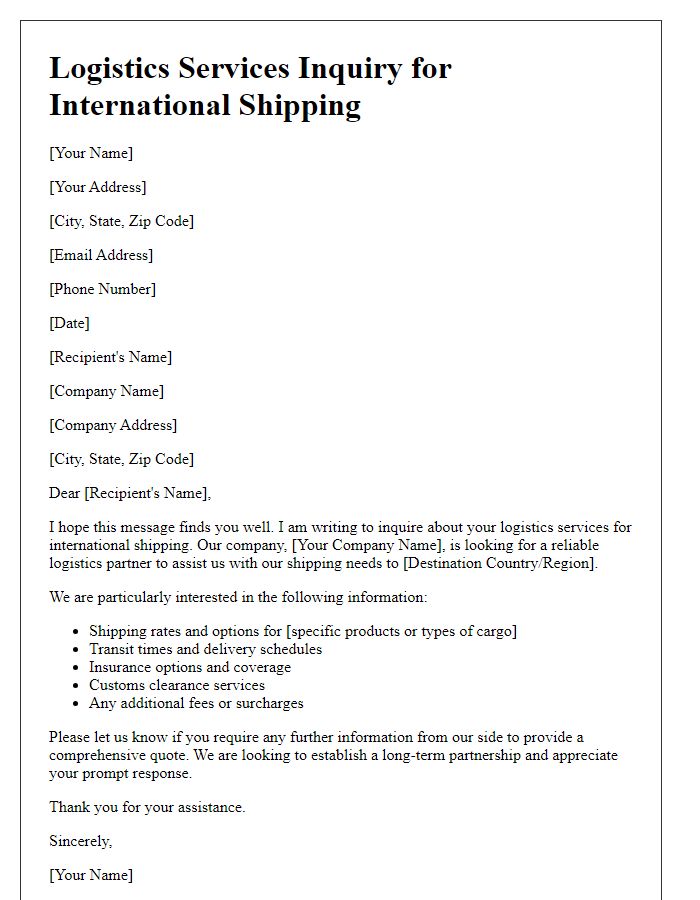
Letter template of logistics services inquiry for expedited shipping options.
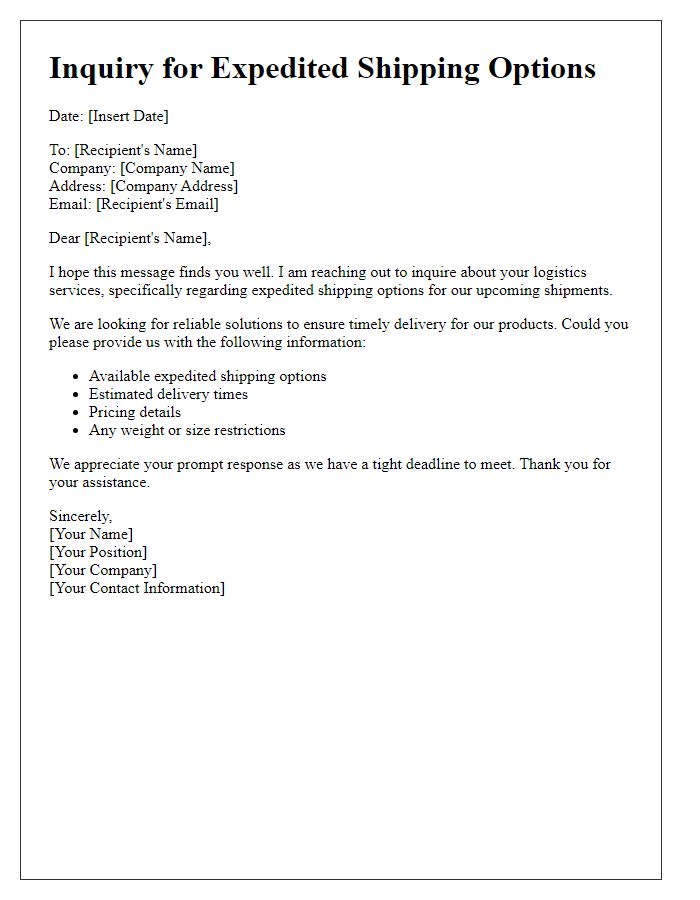

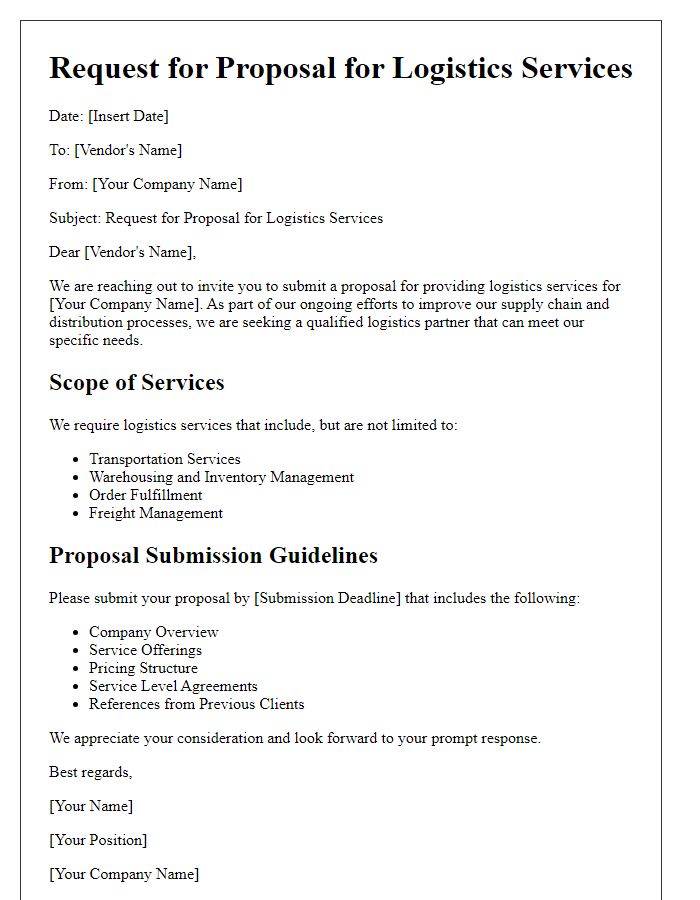
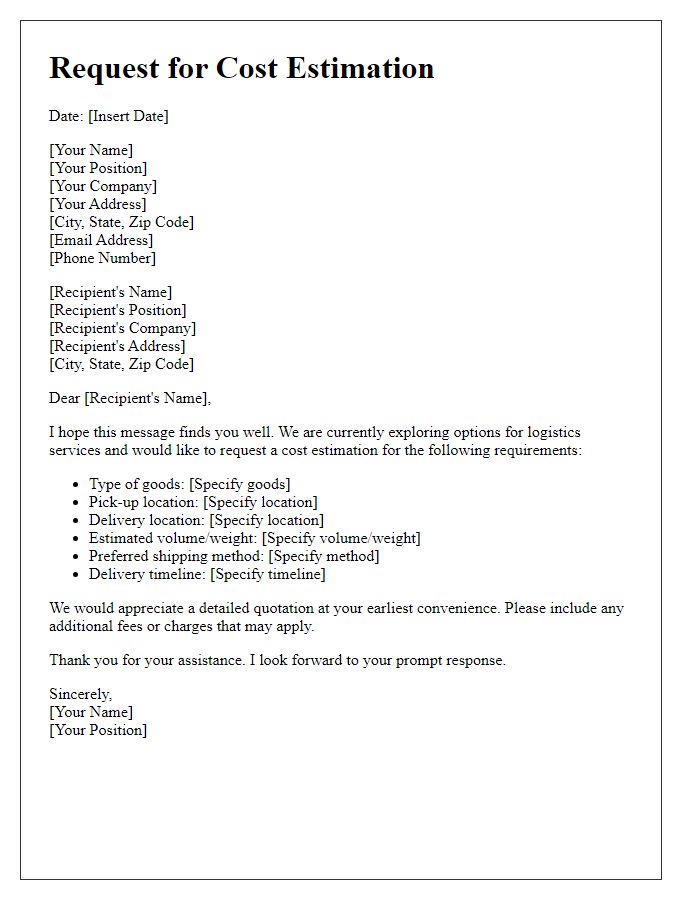
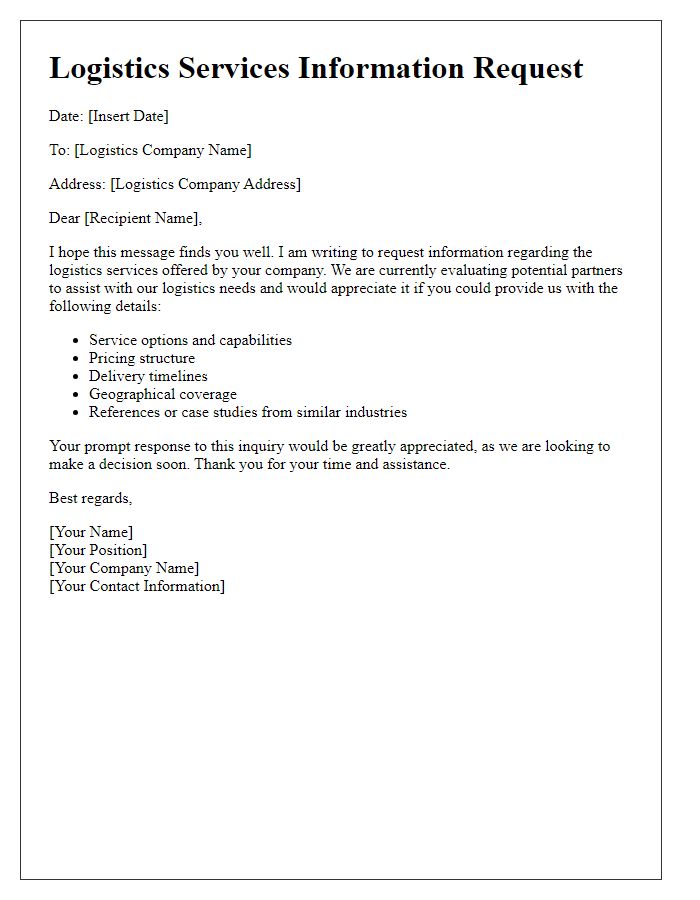
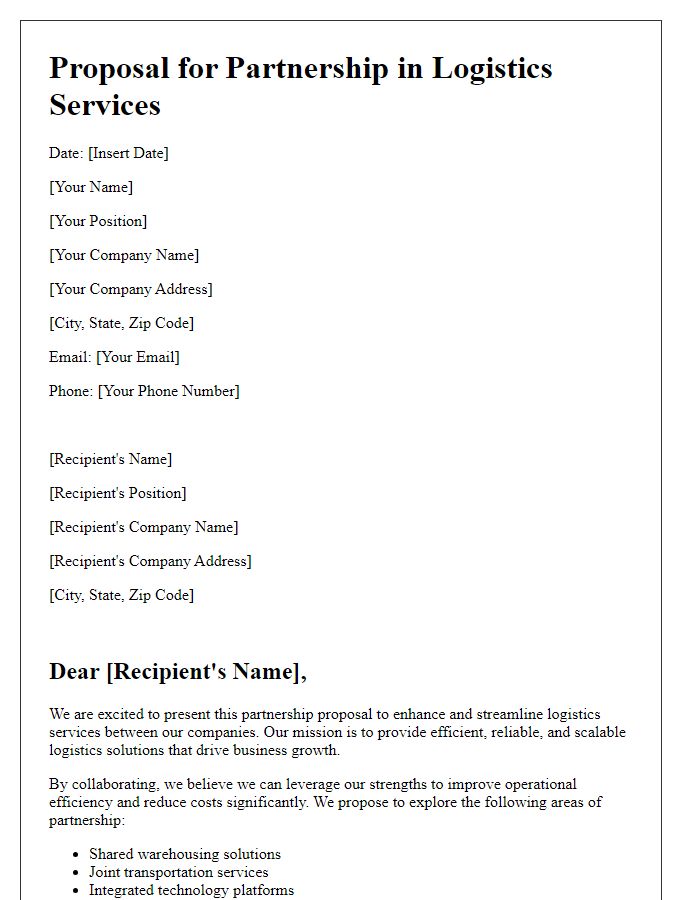
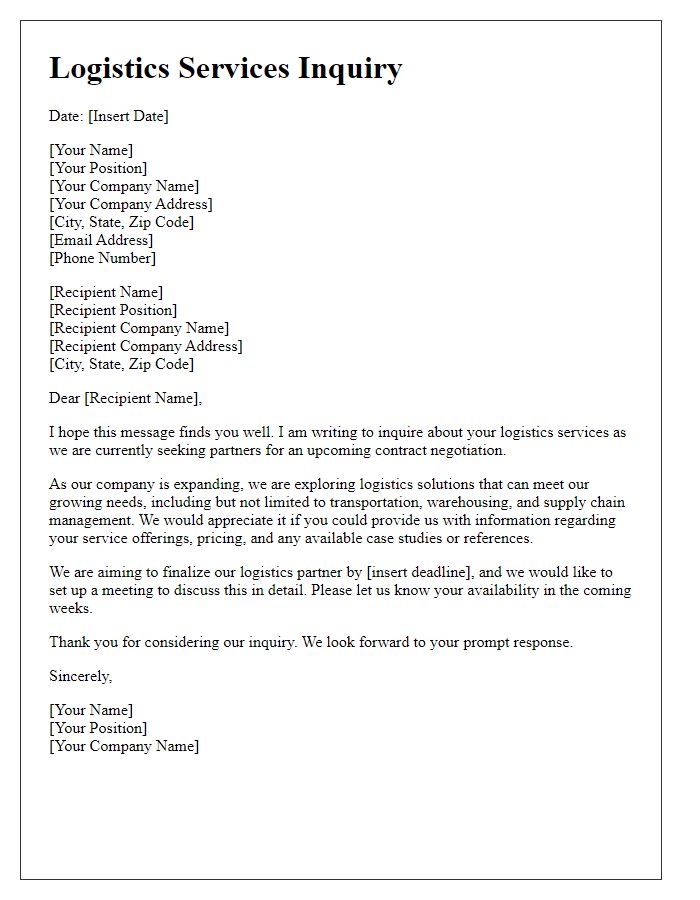
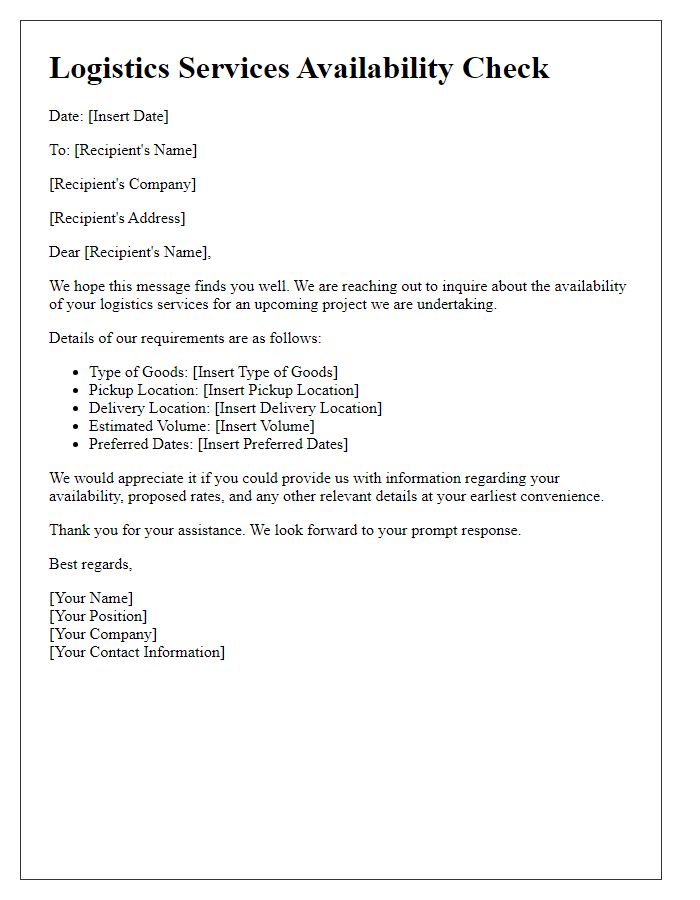
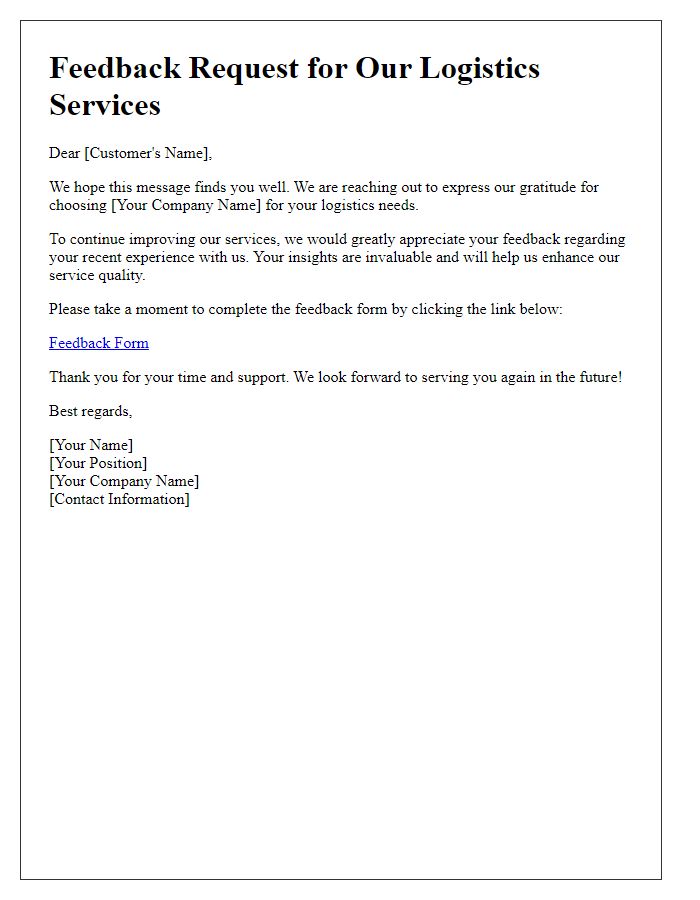
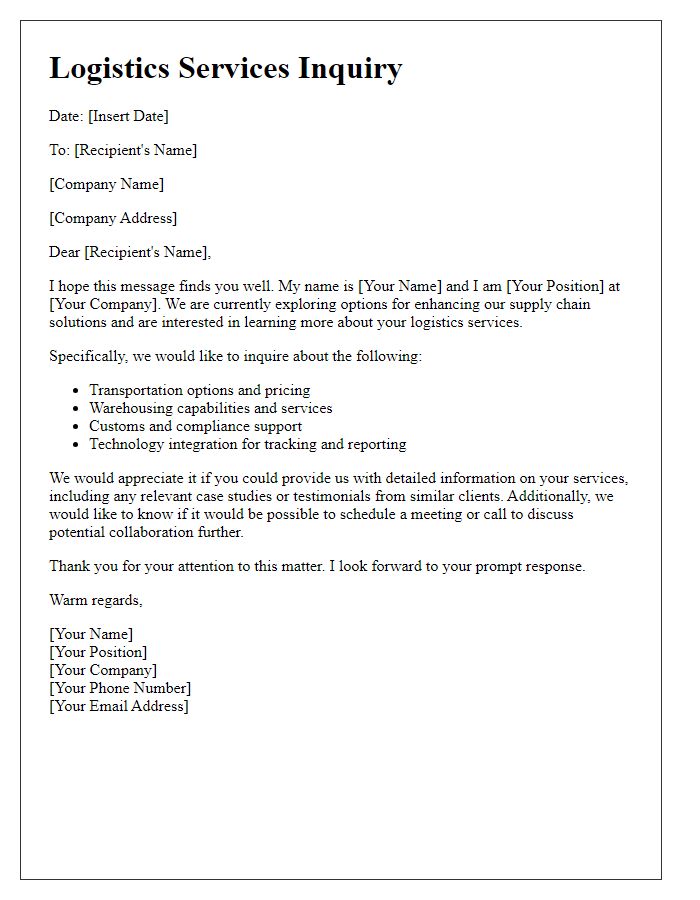


Comments